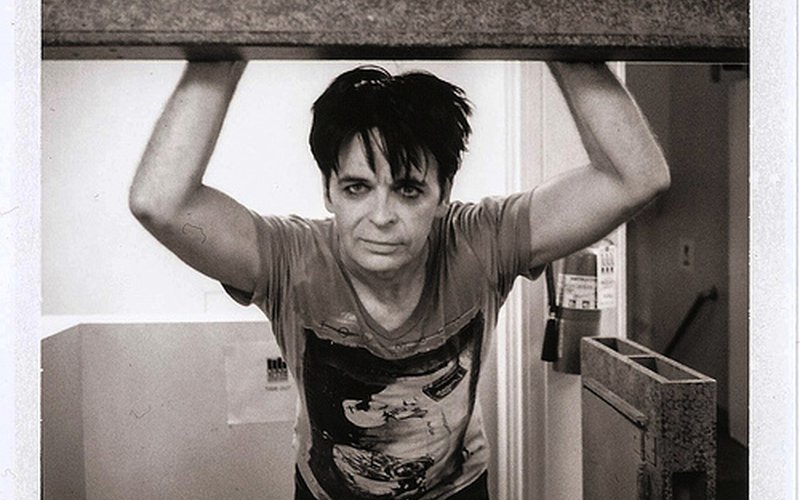Renegade. Revolutionary. Relentless. These words spring to mind when one describes the electronic music pioneer and revolutionary Gary Numan.

A self-confessed “one-man band.” Now at the tender age of 61, Numan continues to shape music and culture with his impenetrable influence. With a career spanning over thirty years, Gary Numan is a prime example of how staying true to your inner artistic voice and the power of authenticity trumps the turbulent and disruptive world of sensationalised culture and corrupted debauchery.
First appearing in the industry in the 1970s as front man for band Tubeway Army, Numan later released his iconic singles “Are ‘Friends’ Electric?” and “Cars.” Subsequently releasing his solo debut album “The Pleasure Principle” in 1979 to chart-topping commercial success, Numan was renowned for pioneering the electronic music genre after discovering a Minimoog left behind in a studio recording session. Definitely the happiest accident of his life.
His signature synthesizer sounds melded with his punk rock aesthetic and distorted, gritty tones (with instruments guitar, bass and drums). Throughout history, Numan’s music has unveiled to become a beacon of creative light for artists such as Nine Inch Nails, most notably Trent Reznor and electronic superstars Daft Punk, just to name a few.
Being the sole creative force behind his album “The Pleasure Principle” (released in 1979), Numan further experimented with synthesized sounds. “Telekon,” Numan’s third album was released just a year after “The Pleasure Principle.” With the electronic and guitar sounds, the album lyrically discussed his struggle with the isolation of his newfound fame, which was reflected in the record.
In early 1981, Numan publicised that he would be retiring from touring, shocking the world and his cult following. According to Numan, the touring was taking a toll on his music creation, with the time spent away from the studio and fame’s black hole vortex, Numan had an impending thirst to take a step away from the limelight.
Later, Numan came to the epiphany that his thinking was flawed to blame touring for his lack of creativity. As a result, Numan went on a quest to re-discover and renew his love and passion for music as a hobby. An act of pursuit that ultimately liberated his creative genius and spirit. After struggling with his musical direction and with his popularity waning over the years, Numan decided to set up his own record label, Numa Records.

The process of setting up his own record label proved a huge undertaking, leaving Gary initially overwhelmed. Nevertheless, Numan reflected on how the setting up of his own record label turned out to be an integral learning curve for his career. The financial pressures of running his own label as well as being ignored by the press only continued to spur Numan along in his career trajectory as he continued to shape-shift and augment his creative and musical vision.
After losing his way musically with the critical failure of “Machine and Soul,” a shiny, sanitized, polished pop record, Numan began dating long-time fan Gemma O’Neil. Gemma, now his wife, was crucial in aiding Numan re-evaluate his musical direction and purpose.
A relationship that positively changed the course of Numan’s musical career. Once Gary renewed his purpose, his confidence skyrocketed and there was a musical and artistic cohesion that’s reflected in his later records, driven by a strong inner purpose. Finding his feet again creatively. When discussing the positive impact of his relationship with Gemma, Gary said:
“Gemma managed to make me understand, after a lot of arguing, that I’d progressively taken out the Gary Numan part of my sound because of my lack of confidence. I didn’t like my voice or my playing, I had no confidence at all.”
Numan continued to re-establish his love for music. A pivotal moment in this career was the emotional and transformative experience of performing at London’s 02 Arena in 2009 alongside Nine Inch Nails, to a rapturous reception. Both Trent Reznor and Gary Numan mutually adore and respect one another with Trent Reznor attributing Numan as being a significant influence towards the construction of the Nine Inch Nails sound.
A timeless influential that truly is underrated in musical history. It comes as no shock that Numan recently received the Ivor Novello Award for Inspiration in 2017. As Gary Numan quite aptly said;
“It has to be about writing songs, for the love of writing those songs”
What’s so fascinating about Numan as a person is that despite his music presenting an ominous and dystopian aesthetic, Numan is whole-heartedly down-to-earth and humble as a human being. His creative and artistic longevity is testament to his bold statement of staying true to oneself, with the freedom to simultaneously reinvent yourself artistically.
Adapting yourself to different contexts and cultures, while still voicing your inner purpose and artistic message. Like all artists that have been in the game for quite a while, there is a surrounding subliminal stigma associated with one’s relevance. Artists inevitably become either washed up in the trappings of fame and glory as the foundation of the house slowly crumbles away at their feet, or they take ill advice which results in misguided, disconnected and disenfranchised music.
It’s inspiring to see Numan’s career progression, especially with the release of his latest album entitled “Savage – Songs from A Broken World” released in 2018. “Savage” is an exemplar of Numan’s persistence, perseverance and musical prosperity with culturally relevant lyrical choices and a soundscape that authentically resonates with Numan, outlasting all the naysayers.
Numan is not merely a pioneer, but a cultural institution. A cultural institution and pillar of creative integrity and authenticity. A cultural institution of musical and creative cleansing that simultaneously manages to tap into the zeitgeist of today’s pressing and troubling issues.
“Savage – Songs from A Broken World” is a glowing reflection of Numan’s unapologetic and ubiquitous worldview. Diagnosed with Asperger Syndrome from a young age, Numan has whole-heartedly embraced this as a superpower to tell it like it is. Through his music.
In “Savage (Songs from A Broken World)”, Numan embraces a heavier, darker and more sinister sonic aesthetic. Inspired by his family and his 11-year-old daughter Persia, who is featured in his music video “My Name Is Ruin” (Persia also sings on his track).
In the formulation of the album, Numan initially wrote a novel envisioning a post-apocalyptic/Trumpocalyptic world as a source of inspiration. The story of climate change and the resultant political decisions (or shall we say, indecisions) served as a catalyst when drafting up this album.
Inspired by science fiction as well as the impending doom of food and water scarcity, Numan’s music video “My Name is Ruin”, portrays a Mad-Max simulated post-apocalyptic world of global warming in the not too distant future, perceiving humanity as a virus. Sonically, the music is a brooding industrial synth electronic rock anthem with a fusion of both Eastern and Western influences. Gloom and doom in all its gore and glory. Guaranteed to leave you perplexed, pondering the current state of the world and where it could potentially be heading. When discussing this creative venture, the Numanoid said:
“The songs are about the things that people do in such a harsh and terrifying environment. It’s about a desperate need to survive and they do awful things in order to do so, and some are haunted by what they’ve done. That desire to be forgiven, along with some discovered remnants of an old religious book, ultimately encourages religion to resurface, and it really goes downhill from there.”
“Savage- Songs From A Broken World” is part of a greater paradigm shift and mass awakening, where people are genuinely concerned about the world’s future. Numan has managed to resonate with society in this darker and heavier album, made with long-time collaborator Ade Fenton.

In true workaholic fashion, Numan is slated to release an orchestral album, “Gary Numan & The Skaparis Orchestra – When the Sky Came Down (Live at The Bridgewater Hall, Manchester)” on December 13th, 2019.
What’s more, Numan is a true musical entrepreneur. His 2019 active album campaign and website allows fans to follow his progress from “Savage” and track his ideas and musical development. In terms of advice for the next generation of musicians, Numan pressed his strong advice, to not listen to advice. The irony seeps deep. But truly, the wrong advice has the potential to dismantle an artist’s career.
Numan reminisces that the shortcomings of his success was partially due to him listening to malicious industry advice, in a desperate attempt to stay relevant. When discussing his career’s longevity, Numan humbly attests it to the fact that he psychologically eradicates the pressure of leaving a ‘legacy’:
“People who have been around for a long time often tend to bland out a bit and become more middle of the road, or they hide in nostalgia and live on the back of what they did before. Both of these options are awful. Being proud of your legacy is one thing, but becoming trapped by it is another thing entirely. I’m not one for self-praise but I am very proud of the fact that as I’ve got to the more precarious latter part of my career the music’s got progressively darker and even less radio friendly. I’ve done the opposite of playing it safe.”
There you go kids. An insight into the life and arduous yet fulfilling creative journey. The endless pursuit for a child-like sense of curiosity and creativity. It’s character’s like Gary Numan that are bold and unafraid to disrupt to status quo, that ultimately inspire countless generations. An outlier that unapologetically and staunchly digs their heels into the ground, creatively pursuing their innermost artistic vision. Constantly evolving, refining and re-designing. A creative beacon of musical cleansing, reinvention and revolution.
What are your thoughts on Gary Numan’s reinvention? Let us know in the comments down below!







